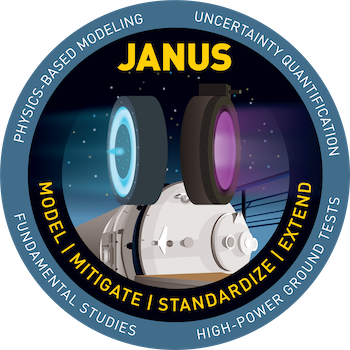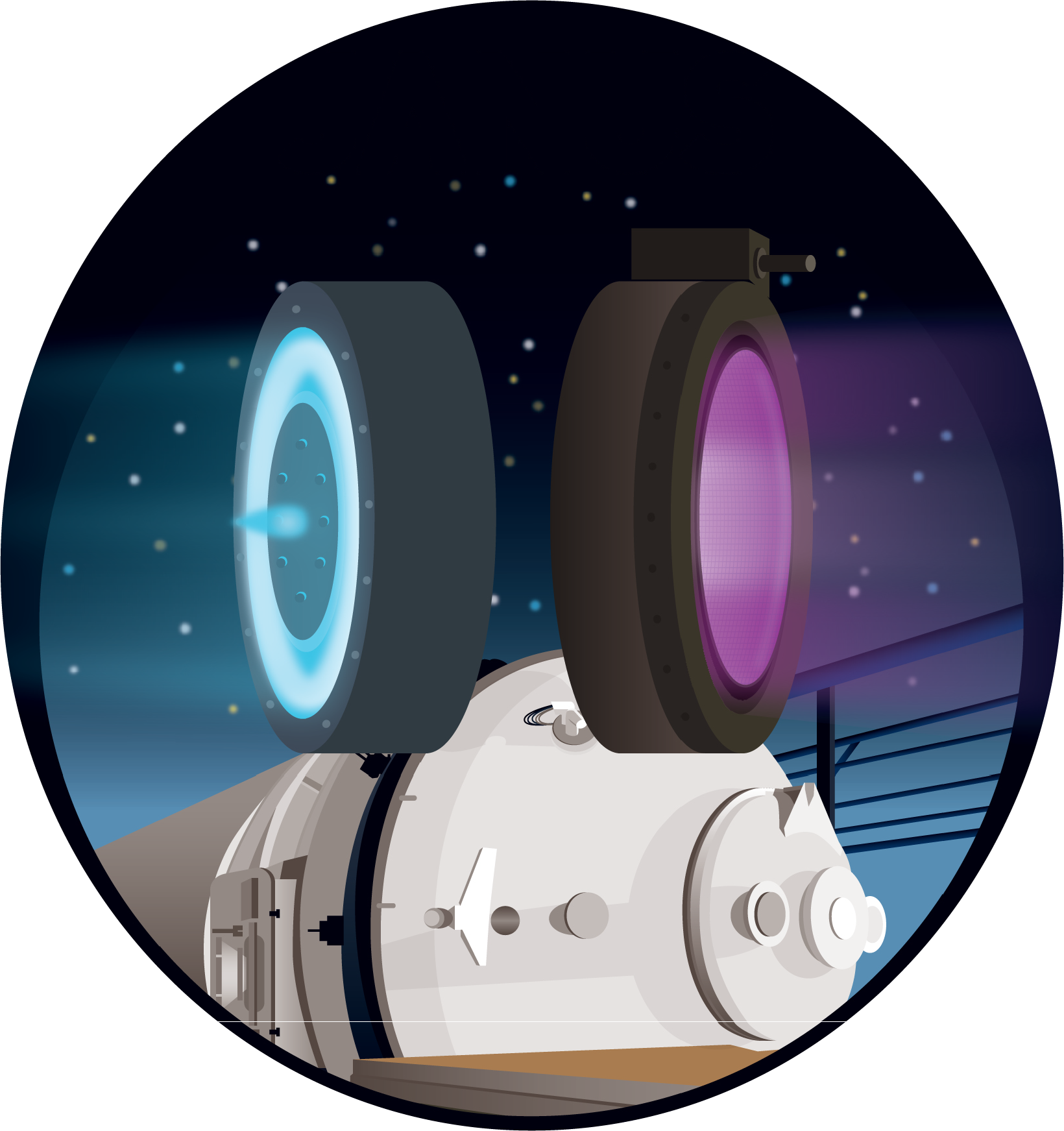Joint AdvaNced PropUlsion InStitute (JANUS) 
Director: Mitchell L. R. Walker, Georgia Institute of Technology
Vision:
The vision of the Joint AdvaNced PropUlsion InStitute (JANUS) is to enable and proliferate the flight of high-power electric propulsion (EP) systems. Successful completion of the proposed studies will establish physics-based limits, mitigation techniques, and extrapolation procedures to provide a probabilistic assessment of the in-space performance and lifetime of high-power (~100 kW) EP devices.
The assessment will come from measurements made in ground-based test facilities combined with predictive engineering models. To realize this vision requires a significant advance in our understanding of the limitations of test facilities, physics-based numerical models, mitigation technique efficacy, and in-space operation of EP devices.
JANUS Approach:
To develop predictive engineering models (PEMs) of EP performance (thrust, efficiency, specific impulse, plume properties, and electrical coupling) and lifetime that include known facility effects.
The approach is broad in scope and multidisciplinary in nature. The approach requires that the thruster, facility, power supplies, diagnostics, and related models are addressed holistically.
It requires experiment and modeling expertise in plasma physics, gas dynamics, plasmamaterial interactions (PMIs), laser and optical diagnostics, electrostatic probes, vacuum facilities, thruster testing, high-speed data acquisition, and power electronics.
Partners:
To perform the required research, JANUS has mobilized a comprehensive team of world-class researchers who are subject-matter experts in the relevant research areas.
- JANUS is composed of 17 faculty members from eight universities
- JANUS contains three additional faculty collaborators from three minority-serving institutions
- JANUS formally interacts with three leading organizations (Busek, Aerojet Rocketdyne, Aerospace Corp.) in EP.
The work and interactions within the structure of JANUS will ensure a highly-interdependent, multidisciplinary approach to all portions of the research plan to develop unified experimental approaches and complementary models for accurate prediction of thruster performance and lifetime.
- To ensure the integration and interdependence of JANUS, the modeling and the experimental teams will work closely together to determine and execute synergistic campaigns.

